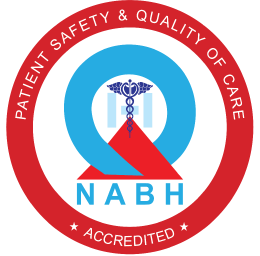Obsessive-Compulsive Disorder
A Thorough Understanding of Its Management
Obsessive-Compulsive Disorder is a broad mental health illness in which individuals suffer from obsessive, repeated compulsive behavior that prevents their function from proceeding in a normal way in their daily activities and life as a whole. In this one-of-a-kind exhaustive guide to understanding OCD, readers can learn about its symptoms, causes, and effective treatment strategies.
What is It Like to Have an Obsessive-Compulsive Disorder?
OCD is chronic mental health disorder illustrated by:
- Recurring, unwanted thoughts (obsessions)
- Repetitive behaviors or mental acts (compulsions)
- Intense anxiety and distress
- Significant interference with daily life
- Uncontrollable thought patterns
Types of OCD
Contamination OCD
- Extreme fear of germs
- Excessive cleaning behaviors
- Persistent hygiene concerns
Checking OCD
- Repeated verification of actions
- Persistent safety concerns
- Extreme worry about potential dangers
Symmetry and Ordering OCD
- Intense need for perfect arrangement
- Compulsive organizing
- Extreme discomfort with asymmetry
OCD Symptoms
Obsessive Symptoms:
- Intrusive, persistent thoughts
- Extreme fears and worries
- Unwanted mental images
- Irrational beliefs
- Anxiety-driven cognitions
Compulsive Symptoms:
- Repetitive behaviors
- Ritualistic acts
- Constant checking
- Excessive cleaning
- Mental neutralizing techniques
Potential Causes
Contributing factors include:
- Genetic predisposition
- Inbalances in brain chemistry
- Variation in neurobiology
- Environmental stressors
- Traumatic experiences
- Familial history of anxiety disorders
Comprehensive Ways of Treatment
Psychological Interventions
- Cognitive-Behavioral Therapy (CBT)
- Exposure and Response Prevention Therapy (ERP).
- Counseling to individuals.
- Cognitive restructuring methods.
Medical Treatments
- Selective Serotonin Reuptake Inhibitors (SSRIs)
- Psychiatric Assessment
- Personalized Medication Management
- Neurochemical balance support
Holistic Approaches
- Mindfulness
- Stress Reduction Techniques
- Regular Exercises
- Support Group Participation
- Relaxation training
Management Strategies
- Recognize trigger patterns
- Coping strategies
- Practice mindfulness
- Challenge intrusive thoughts.
- Stay on track with treatment.
- Build support bases.
When to Seek Professional Help
Consult mental health professionals if experiencing:
- Persistent intrusive thinking
- Disruption of functioning in daily life
- Very high levels of anxiety
- Compulsive behavior
- Potentially damaging relationships with family and friends.
Fight the Stigma
Mental health awareness continues to fight through prejudice against OCD, bettering its advocates to achieve compassion and support of the people who wade through this complex issue from all its aspects.
Hope and Emerging Research
Continuous scientific advancements provide us with:
- New treatment techniques
- Understanding of the neurologic mechanisms
- Personalized intervention strategies
- Last but not the least, an incidence of hope for better quality of life
Conclusion
OCD is a treatable condition. With intensive support and professional treatment along with tailored strategies, individuals can effectively control their symptoms and can get their lives back. Remember: Your thoughts do not define you. Hope, understanding, and support are alway there.
Consult Now
Take the First Step Towards a Better Tomorrow
Your mental well-being matters, and you don't have to face it alone. Our experienced team at MindPlus is here to support your journey to wellness with understanding, expertise, and compassion.

